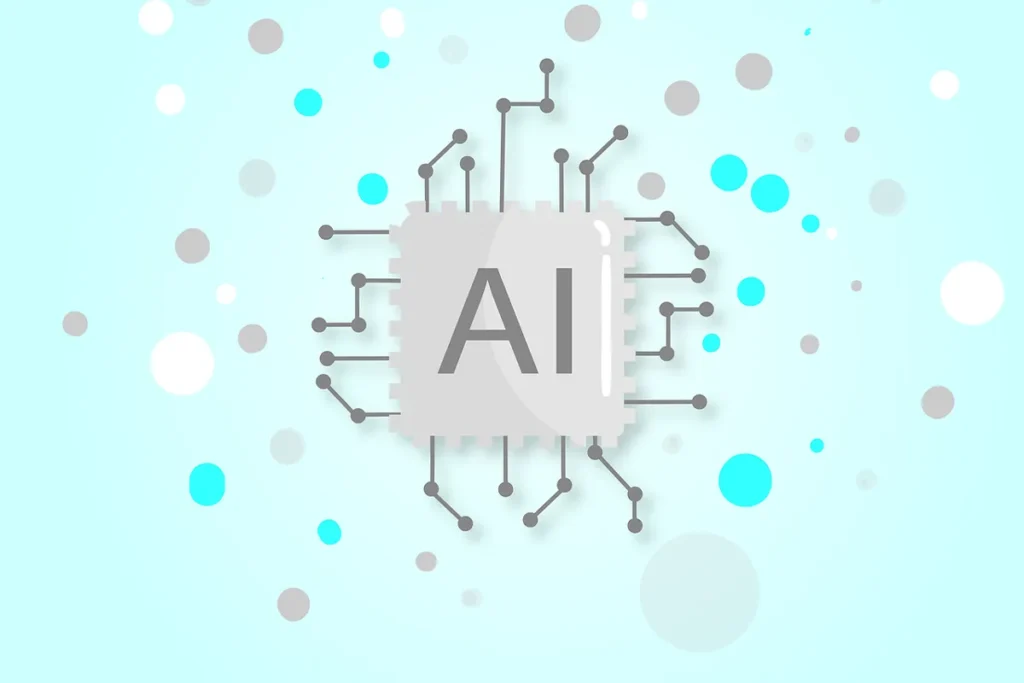Contact data standardization is the most important element of a successful Customer Relationship Management (CRM). Without properly maintained data, it is easily accessible, manageable, and available when required. In data standardization, names, addresses, phone numbers, and email addresses are formatted in a uniform pattern. The aim is to keep the data clean, accurate, and accessible.
Clean and consistent data across various databases improve data quality and communication and provide a conducive environment for effective decision-making. Therefore, it is important to prioritize contact data standardization with AI to achieve accuracy and efficiency.
With AI prevailing in every field, contact data standardization is no exception. AI has made it easy to manage information. You can apply the changes in no time and organize the data in a very convenient way. This reduces management costs and resources.
Current Challenges in Contact Data Management
Inconsistency in formats: Different data formats can cause confusion. Organizations keep contact information in many styles, which makes it hard to process. For example, one entry may have a phone number like “(123) 456-7890,” and another may show it as “123-456-7890.” This lack of unity makes communication difficult. Standardization is needed for better operations.
Duplicate entries: Duplicate entries make things worse. When customer records appear two times, teams waste time contacting the same people. This redundancy annoys both employees and customers. It also hides the true size of a customer base. The right organization must remove duplicate contacts to keep things accurate.
Missing or incomplete information: Missing or incomplete information is another big issue. A contact record can miss an email or a phone number. Without complete data, people cannot reach out effectively. This gap can stop businesses from getting good opportunities. Accurate data must have full details. This helps organizations contact people efficiently.
Impact of poor data quality: The impact of poor data quality is large. Organizations face problems when data is wrong. Employees waste time trying to contact the right person. Poor quality data makes them make bad decisions. This distraction slows down work and harms performance.
Increased costs: Businesses spend money on marketing without knowing their audience. When the data is wrong, these efforts can fail. Companies must spend more money to fix data issues. Every dollar that is wasted is a lost chance for growth.
Loss of customer trust: Customers want businesses to know their information. When companies send emails to the wrong people, trust goes away. Consumers may feel frustrated and not valued. Trust is difficult to regain once it is gone.
AI Technologies for Contact Data Standardization
AI has changed how companies work with contact data. Machine learning helps with this. Supervised learning allows computers to learn from labeled data. The computer uses examples to get better results. Unsupervised learning works without labels. It finds patterns and similarities. These two methods can make data classification and clustering better. Businesses can group contacts by what they have in common.
Natural language processing (NLP) is also very important. It helps machines understand human language. Text normalization is a key task in NLP. This task makes data uniform. It changes different formats into a single style. For example, NLP can change “123 Main St.” and “123 Main Street” to be the same. Parsing helps to organize data. This means breaking down information into parts. These parts are easier to analyze.
Entity recognition is a strong tool. It identifies names, addresses, and other important information. It helps businesses find useful data hidden in text. This ability gives better insights and improves contact management.

Data cleaning and enrichment tools can make a big difference. Automated deduplication systems find duplicate entries. These systems remove duplicate entries. This action saves time and energy. Companies get a cleaner contact list. Address and contact validation tools also make sure of accuracy. These tools check that the data matches real-world information. Validated data ensures that customers get the right outreach. It improves communication and engagement.
Investing in these AI technologies leads to reliable contact data. The possibilities for better business processes are exciting. It raises a question for decision-makers: How much can better data impact your bottom line? Organizations cannot miss the importance of data accuracy. The journey to better data management starts with the right technology. Each step taken improves efficiency and helps customer relationships.
Implementing AI in Data Standardization Processes
Before using AI, it is important to check your data. Look for errors like duplicates or missing fields. You must also check for incorrect formats. Conduct a detailed review to see how much bad data you have. This step helps you understand your data’s strengths and weaknesses. Knowing this guides your next moves to efficiently organize contacts and raise productivity.
Choosing the right AI tools is the key to success. Different tools have different purposes. Some tools focus on cleaning data, while others improve its quality. Research tools that are available. Match them to your needs. Make sure they fit your data goals.
Create a strong strategy for standardization. Define the formats and standards you want to use. Consistency is very important for data accuracy. For example, decide if you will use full names or initials. Set guidelines for all team members. Next, integrate the AI solutions into your existing systems. This will make it easier for everyone to use new tools.
After you implement AI tools, remember to monitor the process. Regular checks help you measure accuracy and performance. Use metrics to track how much your data quality improves. This will show the impact of AI on your business. Change your strategies as you see fit.
Future Trends in AI and Data Standardization
Always look for ways to improve your data processes. AI technology changes fast. New tools and methods come often. Stay updated to keep your data accurate and efficient. With ongoing evaluation, you set the stage for long-term success. This effort pays off. Good data leads to better decisions and more opportunities.
Artificial intelligence improves every day. New AI technologies make data standardization faster and more reliable. Machine learning allows systems to understand patterns in data. This means AI can learn from examples. It gets better at fixing mistakes. The automation of data processes saves time and cost. Businesses save resources and gain accurate information.
Combining AI with other technologies opens new doors. For instance, blockchain brings secure and clear data recording. When AI uses blockchain, it verifies and standardizes data quickly. The Internet of Things also helps. IoT devices collect large amounts of data. AI manages and organizes this data well. This integration makes data flow better. Businesses can rely on automated, high-quality information for decision-making.
Ethical considerations will become important in future discussions. As AI gets smarter, it also raises questions. Who owns the data that AI processes? How do businesses protect customer privacy? These questions need clear answers. Organizations have a responsibility to use data ethically. This responsibility will become more important as AI gets better. Companies have to get ready for these changes in the industry. They need plans to handle both growth and ethics.
Conclusion
Using AI for contact data standardization has many benefits. AI tools clean and organize data very fast. These tools find duplicates and fill in missing information. Machine learning helps AI learn from patterns in data. It makes accuracy better over time. AI also helps employees with data entry. Automated processes lower the chance of human error. With AI, businesses can pay more attention to growth instead of data problems. Smart companies use these solutions to perform better.
Businesses must use AI-driven solutions to manage data. The right time to act is now. The world is moving fast, and competition is strong. Companies that do not change will fall behind. Investing in AI technology is good for the future. It can make businesses different and lead to more success.
DejaOffice uses AI to make contact data standard. This helps to keep contact information correct and the same on all platforms. AI cleans data by itself. AI also makes data normal and puts data together. This helps to make data more accurate and faster. The process is easy, and it makes fewer mistakes. It removes duplicate contacts. It keeps the contact database updated. This helps to improve the management of customer relationships. It also helps to make work more productive.
